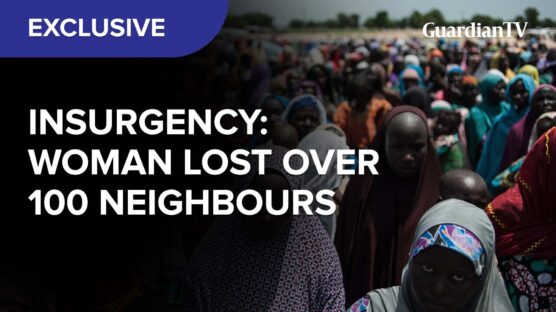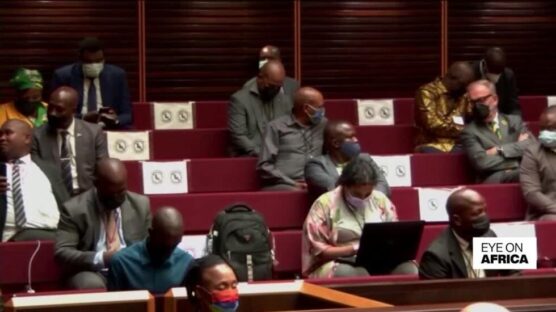Tanzanian government imposes 25% tax on imported hair extensions
By Guardian Exclusive
26 June 2019 |
8:10 am
In Africa, the huge "dry hair" market of weaves, extensions and wigs crafted from everything from synthetic fibre to human or yak hair is worth billions of dollars. But now, Tanzania's government has announced a 25% "dry hair" import tax, which has women and industry stakeholders up in arms.
Related
Related
2 days ago
The heat of the Premier League title race is on and big games are coming this midweek. Arsenal at the Emirates will take on Chelsea, Everton will entertain Liverpool, and Manchester City will be up against Brighton. Ayomide Sotunbo and Hogan Niyi preview the games in this week's edition of The Nutmeg.
2 days ago
Find these stories and much more when you grab a copy of The Guardian on Wednesday.
1 day ago
With the rate of insurgency in Borno State, many lives and families have been severely affected, with thousands being displaced and forced to live in internally displaced camps (IDP). A mother, who has lost neighbors, family, friends, and loved ones still in captivity, shares her heartbreaking experience of living in constant fear. She calls on the government to provide more basic amenities to help her and others in the IDP camp in Chabbol village, Borno state.
1 day ago
Tunde Onakoya, the Nigerian Chess expert who smashed the previous Guinness World Record for the longest chess marathon has returned to Nigeria. The founder of Chess In Slums Africa broke a new record of 60 hours of playtime in New York’s Times Square last Saturday, which is still receiving confirmation from GWR.
1 day ago
Find these stories and much more when you grab a copy of The Guardian on Thursday.
7 hours ago
Guardian Woman Festival: Fostering inclusion and empowerment in aviation.
Latest
41 mins ago
A South African high court judge dismisses a case brought by the ruling ANC that had accused the MK party of copyright infringement. Also, flooding hits many parts of Kenya, sweeping away vehicles, submerging key highways and sending some communities scrambling to find higher ground. Staying in Kenya, we report on how a nation known for its marathon and long-distance running gold medals is now hoping to shine in sprint.
41 mins ago
Boeing said Wednesday that it lost $355 million on falling revenue in the first quarter, another sign of the crisis gripping the aircraft manufacturer as it faces increasing scrutiny over the safety of its planes and accusations of shoddy work from a growing number of whistleblowers.
2 hours ago
Tiger Woods is set to receive an equity bonus in the region of $100 million for staying on the PGA Tour rather than moving to LIV Golf. 193 of the tour’s golfers will receive the payment, which is funded by the Strategic Sports Group, which has invested $1.5 billion into the Tour.
2 hours ago
Videos falsely claiming to show Israel invading or bombing the Gazan city of Rafah have gone viral on X this week. Also, what do we know about Israel's planned invasion of Rafah, based on satellite images? We tell you more in this edition of Truth or Fake.
2 hours ago
Eye on Africa tours the Hope Hostel in Kigali. It's one of the lodgings prepared by Rwanda to take in migrants deported from Britain, the first of whom could arrive in a few months' time under a controversial policy.
2 hours ago
After years of a successful sporting career, Nigeria’s four-time kickboxing gold medalist, Jibrin Inuwa Baba, pays homage to his town Kano where he meets his coach at the Dambe boxing arena. His hope is to see young athletes equally succeed in their boxing career.
×

Get the latest news delivered straight to your inbox every day of the week. Stay informed with the Guardian’s leading coverage of Nigerian and world news, business, technology and sports.


















0 Comments
We will review and take appropriate action.